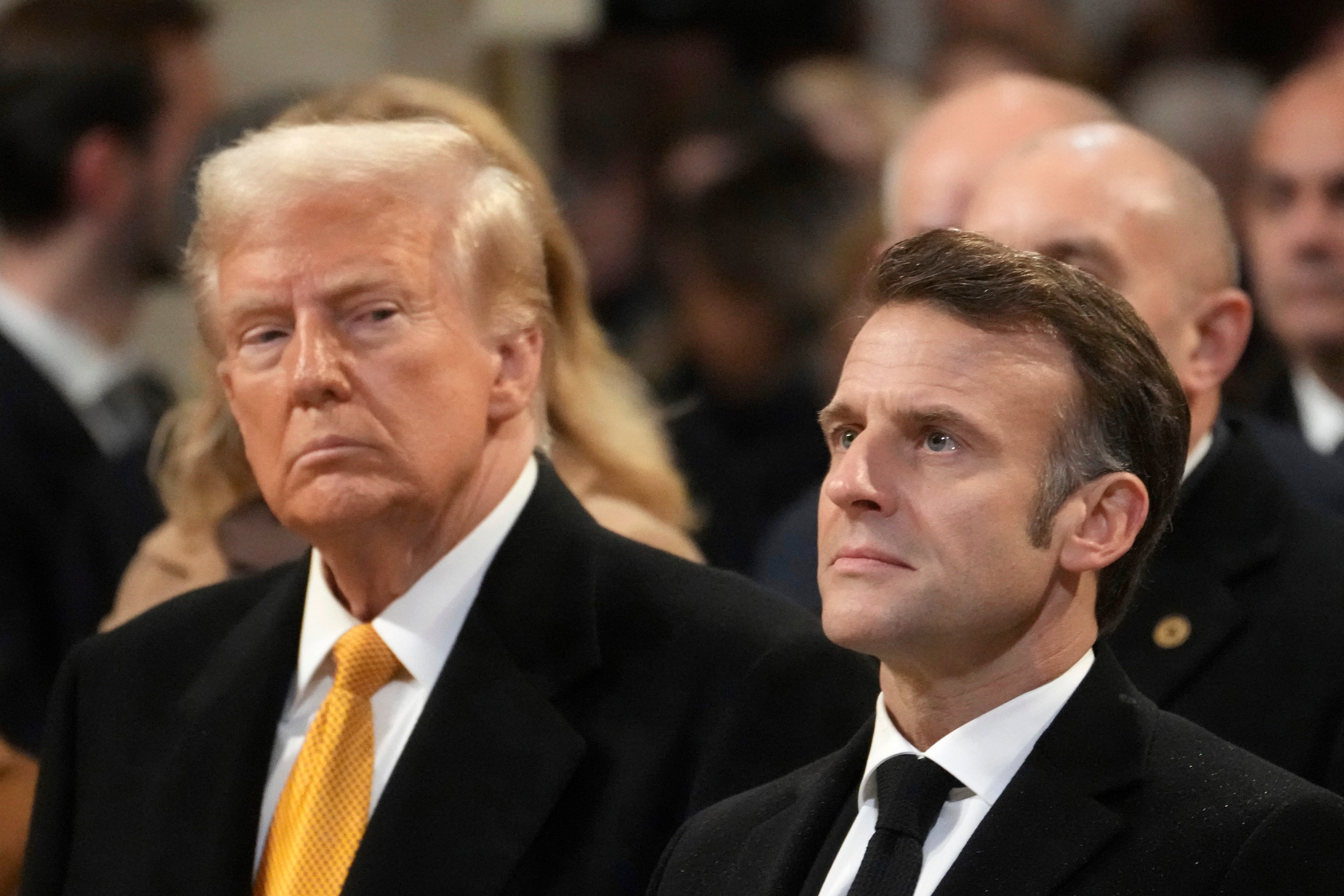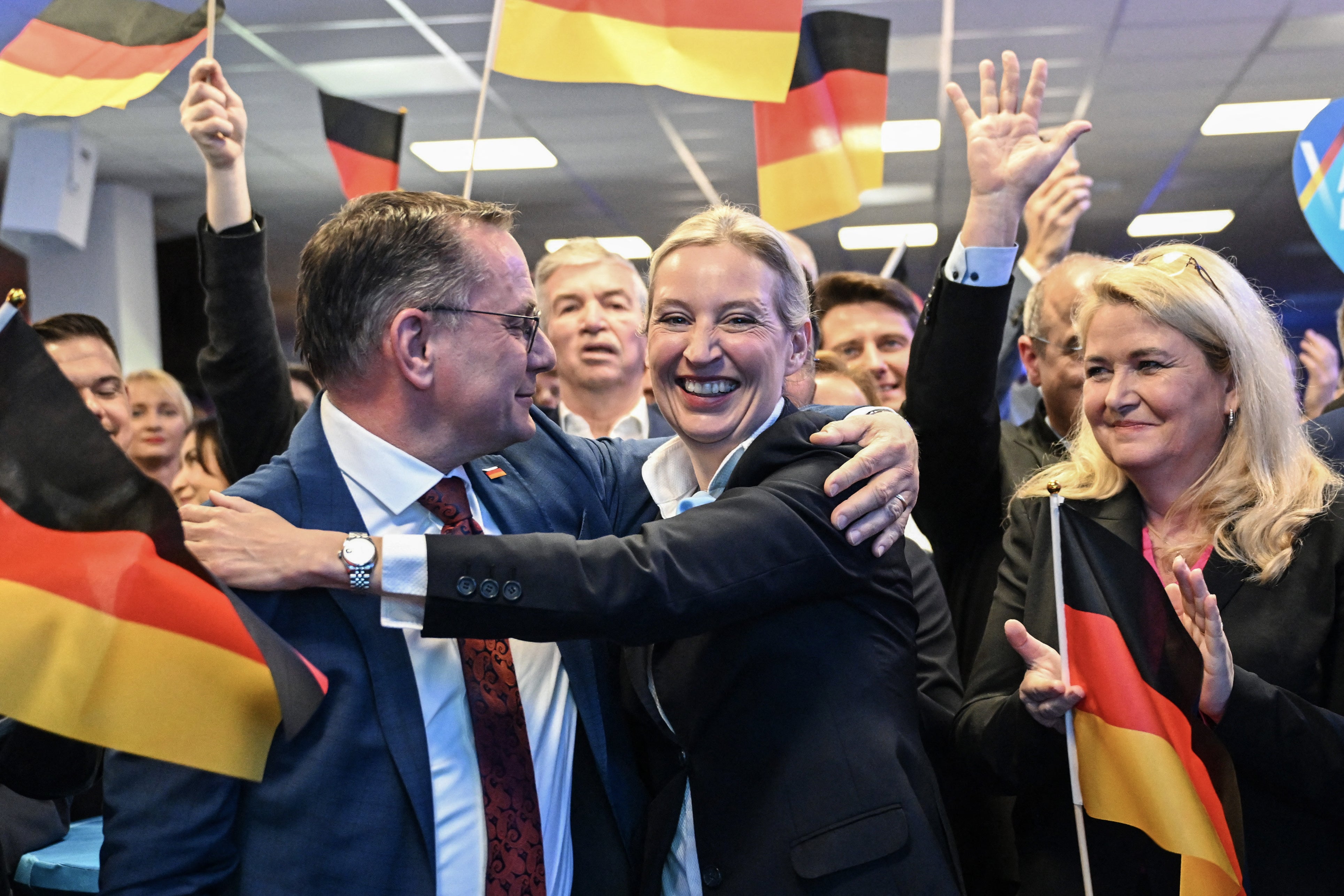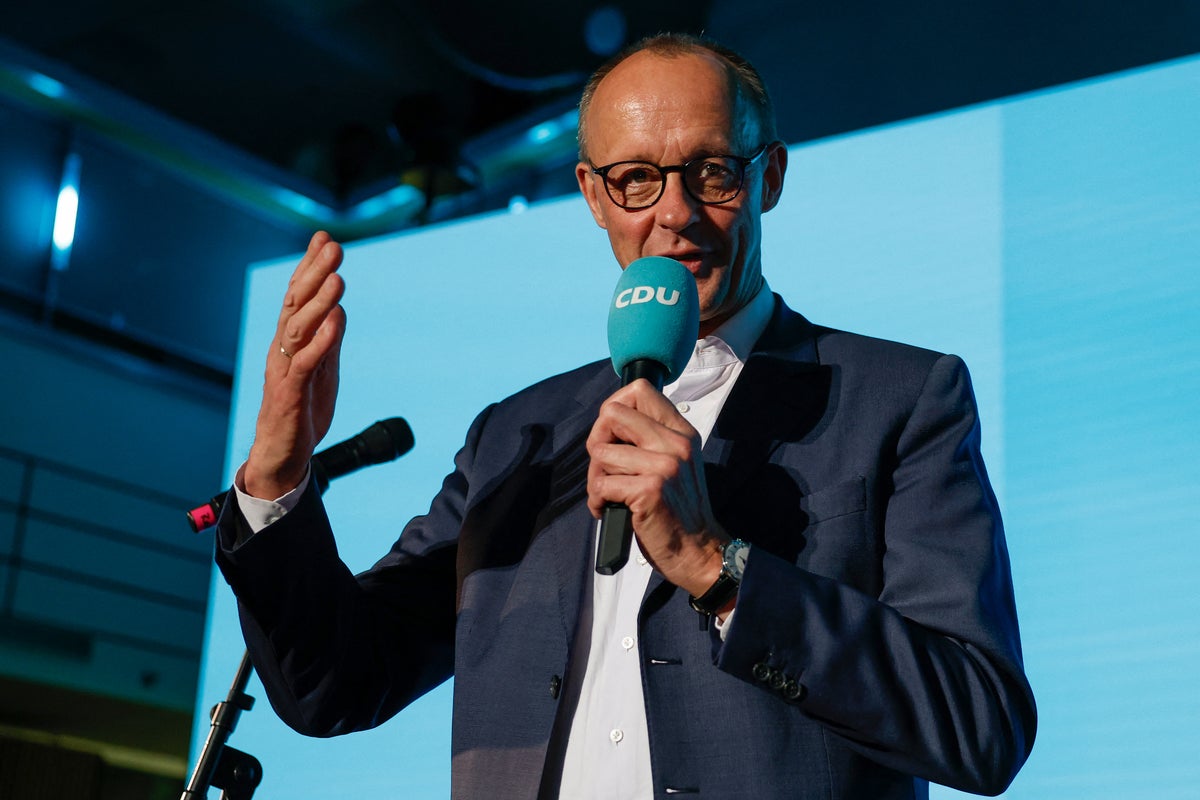Germany’s likely next chancellor Friedrich Merz has called for ‘independence from the USA’ in his first speech after winning the German elections.
Mr Merz also took a swipe at US president Donald Trump and questioned with the NATO alliance would continue to exist. The CDU leader will start trying to form a coalition government on Monday after his conservative bloc won an election that saw far-right and far-left parties attract support from disaffected voters.
In an early indication of his policy intentions, he took aim at the U.S. after his win, criticising the “ultimately outrageous” comments flowing from Washington during the campaign, comparing them to hostile interventions from Russia.
Click here for the latest updates from the election
“For me, the absolute priority will be to strengthen Europe as quickly as possible so that we can achieve real independence from the USA step by step,” Mr Merz said on Sunday.
“I never thought I would have to say something like this on a television program. But after Donald Trump’s statements last week at the latest, it is clear that the Americans, at least this part of the Americans, this administration, are largely indifferent to the fate of Europe.”

The conservative leader also raised questions about the NATO alliance as Europe continues to reel in the wake of Mr Trump’s ‘America First’ policies.
“I am very curious to see how we are heading toward the NATO summit at the end of June,” he said. “Whether we will still be talking about NATO in its current form or whether we will have to establish an independent European defense capability much more quickly.”
Mr Merz, who has no previous experience in office, is set to take charge with Europe’s largest economy ailing, its society split over migration and its security caught between a confrontational U.S. and an assertive Russia and China.
The 69-year-old faces lengthy coalition negotiations after the far-right Alternative for Germany (AfD) surged to a historic second place in a fractured vote following the collapse of Chancellor Olaf Scholz’s unloved three-way alliance.

His conservative CDU/CSU bloc came in first place on 28.6%, ahead of the far-right Alternative for Germany on 20.8%, its best ever result, according to provisional results.
Mainstream parties, however, rule out working with the AfD, a party which is monitored by German security services on suspicion of extremism but has been endorsed by U.S. figures including billionaire Elon Musk.
That means Mr Merz will have to negotiate with Scholz’s centre-left Social Democrats (SPD) to form a coalition in talks that are likely to take months following a bruising campaign that highlighted policy differences.
Mr Merz will, however, not have to rely on support from the Greens for an outright parliamentary majority, after the new BSW party founded by Sahra Wagenknecht, a former leader of the Left party, just missed the 5% threshold required to enter the lower house.




